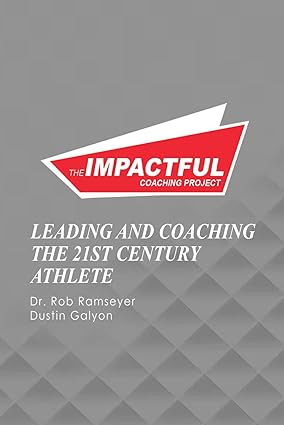A coach we know went through the most difficult season imaginable during the first season of COVID-19. As everyone knows, COVID was no normal time. People were all coping in their own ways and there was just alot of hard. In fact, I thought about leaving athletic administration during that time because I felt like all I did was mediate conflict and deal with angry frustrated people.
This program was a program that was used to winning, lost a lot. There were significant team chemistry issues. Some of the issues turned to blaming the coach. I had to get involved several times. It was a season that was no fun for anyone….I mean anyone associated with the program. The year-end reviews from the players were brutal toward the coach. Some of it fair….some of it not.
It was one of those moments where the coach was going to go one of two ways. He was either going to say, “screw it” and double down that the kids were the issue (or even quit coaching together), or he would lean into the struggle and figure out how to adapt to improve himself and his program.
He did the latter, and it was an impressive display of self-reflection. He adapted and changed some things and doubled down on others. Without going into all the details, I will mention one highlight of a change he made that he thought was impactful.
He began meeting with a leadership team of his captains and small groups among the team. In order to develop deeper personal relationships amongst teammates and with him, he utilized the 5 H’s as a framework for guiding conversation. We learned these 5 H’s from Steve Dickey of Character Works but do not know where they started. The Five Hs are this:
1. What is your heritage (where do you come from)?
2. Who is your hero?
3. What is your greatest heartache (biggest disappointment)?
4. What is your biggest hope for the future?
5. What is your highlight (biggest accomplishment)?
Athletes can share as much or as little as they want in these, but we have found most people love sharing their stories. Being transparent and vulnerable builds trust and relationships.
When you do an exercise like this, it will likely initially be awkward. However, be prepared. If you commit, they will laugh, cry, and be incredibly human with one another. Creating platforms like this for your players to be human with no performance or achievement expectations and see the coach as human will actually lead to better performance and higher achievement goals. There is a security in being known that frees us up to perform and compete with less fear.
Check out our book!
Things That Are Making Us Think
Mike Tomlin: “Don’t run away from the responsibility of coaching…”




